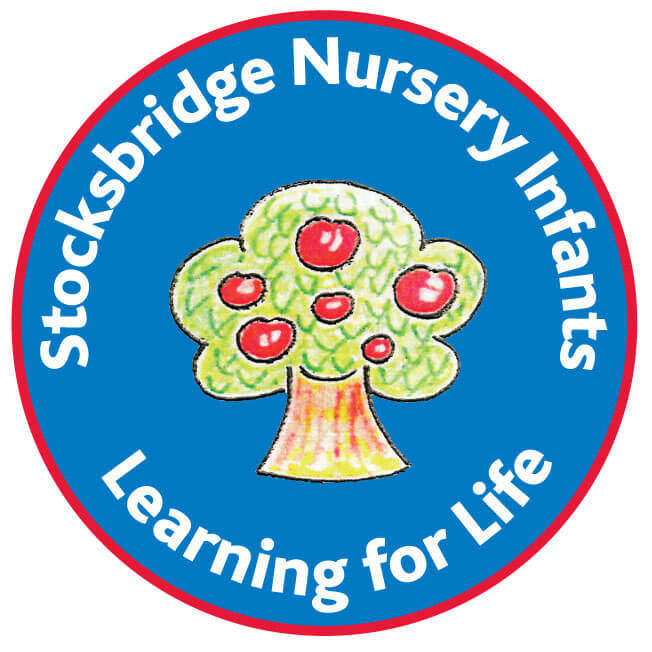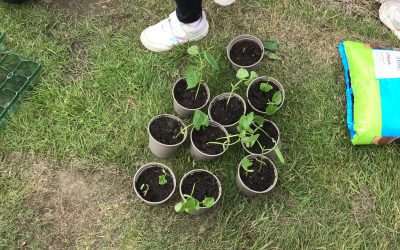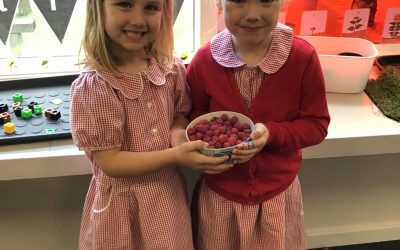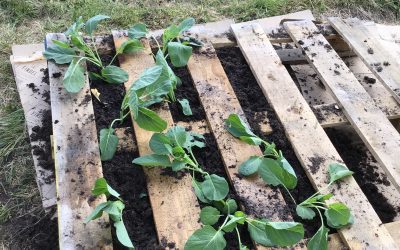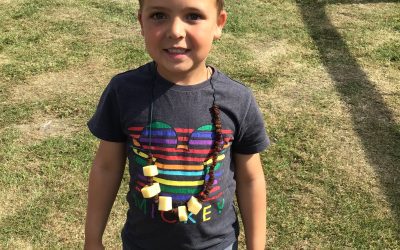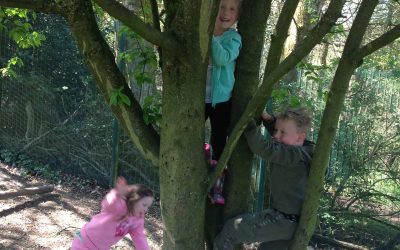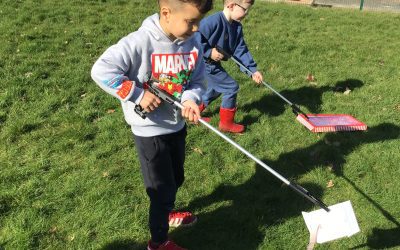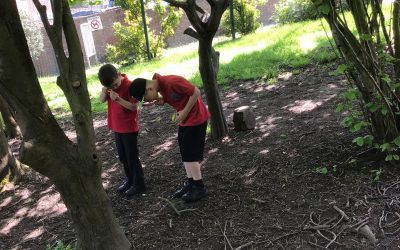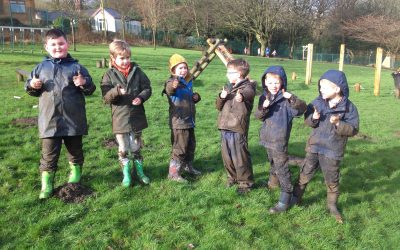‘Learning for Life.’
Science
Statement of intent and implementation
Science Leaflet
Science Progression map
Foundation Stage
Over Foundation Stage (FS), in science, the children will:
- Explore, investigate and experiment in their natural surroundings
- Look closely at animals and plants in their habitats
- Produce and explain findings of small experiments looking at senses, changes of state and properties of materials.
Foundation Stage Science Goals
By the end of FS, a child who is attaining typically will be able to:
- Explore their surroundings and take an interest of where they live.
- Investigate how they can help look after our world.
- Work scientifically and investigate through play, indoors and outdoors.
- Explore a range of living or manmade objects and investigate similarities and differences between them.
- Observe a variety of plants and animals. Discuss where they live, what they eat, how they survive and how it is important to look after them and the environment they live in.
- Work in small groups, experimenting to understand floating and sinking, changes of states, differences and similarities of different materials.
- Explain their findings and how and why things work.
By the end of FS a child attaining typically will be able to understand and use the following vocabulary:
floating – materials – investigate – sinking – difference – living – explore – experiment – similarities – survive – habitats – changes
Key Stage 1
Over Key Stage One (KS1), in science, the children will:
- Use different types of scientific enquiry to answer their own questions.
- Observe changes over a period of time, noticing patterns, grouping and classifying objects.
- Carry out simple comparative tests and to find out things using secondary sources of information.
- Evaluate by communicating what I did, how I did it and what did I find out.
By the end of KS1 a child who is attaining typically will be able to:
- Work in a scientific way performing small experiments.
- Ask and recognise simple questions and understand they can be answered in different ways.
- Living things and their habitats– Explore and compare living, dead and things that have never been alive. Explore habitats and micro habitats and what lives within them, how they are suited and adapted to survive. Identify a variety of plants and animals how they obtain their food and look at simple food chain.
- Plants and seasonal changes- Identify a variety of wild and garden plants including deciduous and ever green trees. Observe, describe, and record how a plant develops from seed or a bulb. Investigate what a plant needs to survive and stay healthy. Observe the weather and the changes across the four seasons.
- Animals and Humans- Identify, observe, describe and label a range of animals and their structure. Identify and label the human body. Explore their survival and investigate their basic needs. Identify and compare animals’ carnivores, herbivores and omnivores.
- Uses of everyday materials- Distinguish between and object and a material. Explore and identify properties and suitability of everyday materials including, plastic, wood, glass, brick paper cardboard.
By the end of KS1 a child attaining typically will be able to understand and use the following vocabulary:
herbivores – carnivores – micro habitat – observe – adapted – survival – deciduous – explore – omnivore – secondary – compare
Blog
Planting, planting and even more planting!
Over the last few weeks in Gardening Club, the children have enjoyed planting a range of seeds and vegetables. They have also worked hard to fill the new planters around the school grounds with compost and a variety of plants.
Raspberry Smoothies in Gardening Club
The Gardening Club has been working hard over the past few weeks to care for our raspberry plants. This week, the children were delighted to see that the fruit was finally ready to be picked. With great excitement, they...
Gardening Club
In Gardening Club, the children have been busy planting a variety of vegetables. They also worked together to plant sprouts into our large planter on the school field.
Bird Feeders in Gardening Club
This week in Gardening Club, the children enjoyed a very hands-on activity: making bird feeders! Using a variety of ingredients such as cheese, raisins, lard and bird seed, they created tasty treats to support our local birds and wildlife. Once they were finished, the...
Forest Schools
We have been so lucky with the weather so far! Weeks 1-3 have seen Class 5 den build, pond dip, bug hunt, hill roll, tree climb and many other things in between.
Class 8 looking after the environment
In Class 8, we have talked about different ways to look after our environment. We talked about how important it is to put our rubbish in the bin. We looked at some photos of where rubbish had been left on the ground and animals had got stuck in it or tried to eat it....
Bug hunting
Class 2 have loved our bug hunt as part of their science learning. They searched for bugs and used ID charts to identify them. The children thought carefully about the habitats of insects and bugs. They certainly found a few creepy crawlies!
Forest Schools
HOORAY shouted Class 5 when they realised it was time for their block of outdoor learning (Forest Schools). Due to the time of year, the children were on the hunt for signs of Spring, which led us into identifying different sticks that we found on the ground. We also...
